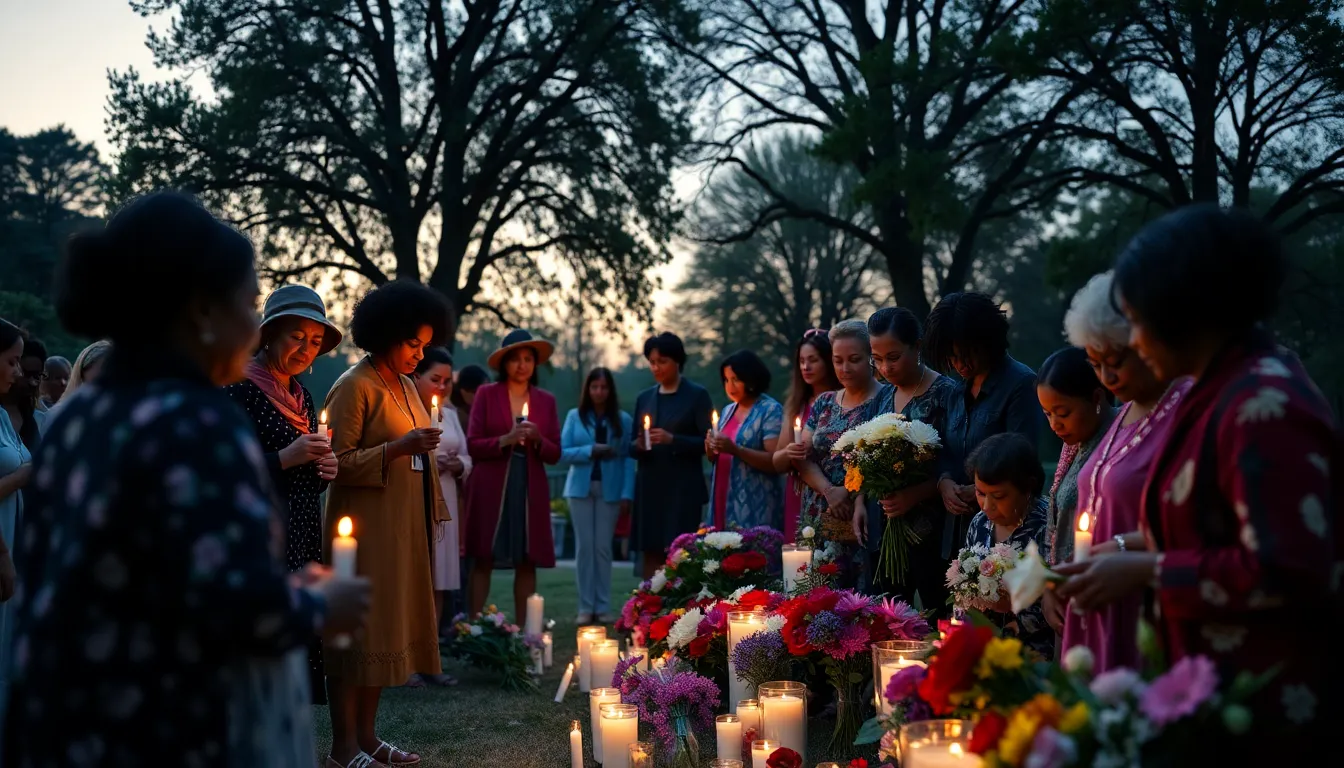Maya Angelou, a literary legend and cultural icon, graced the world with her wisdom and artistry for nearly a century. Her powerful words and unforgettable spirit inspired countless individuals, making her passing a moment that left a profound impact on many. But when did this remarkable woman take her final bow?
On May 28, 2014, the world lost a voice that transcended generations. While her physical presence may have departed, her legacy continues to resonate in every corner of literature, activism, and beyond. So, grab a cup of coffee and settle in as we explore the life, work, and enduring influence of Maya Angelou, reminding us that her story is far from over.
Table of Contents
ToggleOverview of Maya Angelou’s Life
Maya Angelou’s life spanned from April 4, 1928, to May 28, 2014. As a poet, memoirist, and civil rights activist, she left an indelible mark on American literature. Born Marguerite Annie Johnson in St. Louis, Missouri, she experienced a tumultuous childhood. At the age of three, her parents’ separation led to her living with her paternal grandmother in Stamps, Arkansas.
Literature became an escape for Maya, especially after she faced trauma at a young age. She developed a love for books and storytelling that would shape her future work. “I Know Why the Caged Bird Sings,” her most famous autobiographical work published in 1969, brought global attention to her narrative style and powerful voice. This book addressed themes of racism, identity, and resilience, resonating with millions.
In addition to her literary achievements, Maya actively participated in the civil rights movement. She worked alongside prominent figures such as Martin Luther King Jr. and Malcolm X. Her role as a coordinator for the Southern Christian Leadership Conference underscored her commitment to social justice.
Maya Angelou’s contributions extended beyond literature and activism into performance as well. She was a celebrated singer, dancer, and director. Her talents led her to work in various artistic fields, including a role in the film “Poetic Justice” alongside Tupac Shakur.
Not only did she receive numerous accolades throughout her life, but she also became the first African American woman to conduct a streetcar in San Francisco. Recognition of her work includes several Grammy Awards for Best Spoken Word Album. Despite her passing, her legacy lives on through her writings and contributions to society, continuing to inspire new generations.
The Date of Her Passing

Maya Angelou passed away on May 28, 2014. Her death marked the end of an era for many who admired her contributions to literature and activism.
Significance of the Date
May 28 holds significant meaning for those who appreciate Angelou’s legacy. The date not only represents the loss of a brilliant mind but also serves as a reminder of her impact on civil rights and literature. Her birthday on April 4 further highlights the contrast between new beginnings and untimely endings. As the news of her passing spread, many commemorated her life’s work through social media and public gatherings. This collective mourning solidified her status as a cultural icon whose voice transcended generations.
Public Reaction to Her Death
The public reaction to Angelou’s death was profound. Tributes poured in from notable figures, including former President Barack Obama, who acknowledged her immense influence. Fans shared their sentiments online, expressing sorrow and gratitude for her literary gifts. Many gathered at events to celebrate her life, reflecting on her powerful words and transformative ideas. The emotional response highlighted how her work resonated with diverse audiences, uniting people in grief and appreciation. Furthermore, literary communities organized readings of her works to honor her memory, ensuring her voice remains alive in hearts and minds.
Maya Angelou’s Legacy
Maya Angelou’s legacy thrives through her immense contributions to literature and her pivotal role in civil rights activism.
Contributions to Literature
Angelou’s literary work revolutionized American literature. “I Know Why the Caged Bird Sings” marked a turning point in memoir writing, blending raw honesty with poetic eloquence. Readers appreciated her ability to articulate complex themes of identity, trauma, and resilience. Additionally, she published several volumes of poetry, essays, and autobiographies, further enhancing her literary repertoire. Each piece resonated deeply, inviting readers into her world. Awards continued to recognize her talents, highlighting her cultural significance, especially in the African American literary canon.
Impact on Civil Rights
Activism defined much of Angelou’s life. Collaborating closely with civil rights leaders, she dedicated herself to the cause. Alongside Martin Luther King Jr., she fought for equality and justice, emphasizing the importance of voice and representation. Her involvement extended to various organizations, where her efforts galvanized communities. Distinctively, Angelou’s works often reflected her commitment to social justice, emphasizing the power of hope and resilience. This unwavering advocacy inspired many individuals to challenge systemic injustices, ensuring her impact on civil rights endures to this day.
Commemorations and Tributes
Maya Angelou’s passing on May 28, 2014, sparked widespread tributes celebrating her legacy. Memorial events took place across the United States as fans and admirers gathered to honor her contributions. Notable figures, including former President Barack Obama, expressed their admiration for her impact on literature and civil rights.
Literary communities organized readings of her works, emphasizing their relevance in today’s society. Educational institutions held panels to discuss her influence on American literature, inspiring students to explore her themes of resilience and justice.
Social media platforms witnessed an outpouring of heartfelt messages and memories from readers and students alike. Her quotes, such as “I’ve learned that people will forget what you said, people will forget what you did, but people will never forget how you made them feel,” resonated deeply with many.
Local organizations created scholarships and awards in her name, promoting literacy and social justice initiatives. Chapters of literary groups hosted workshops focused on her style and themes, ensuring her voice continues resonating with future generations.
Moreover, her birthday, April 4, became a day for reflection and celebration, with events dedicated to her work and philosophy. Her influence encouraged discussions around equality, empowerment, and the importance of representation in literature.
Angelou’s literary legacy remains prominent through these commemorations, keeping her spirit alive as new readers discover her writing. Dedications in libraries and public spaces serve as constant reminders of her profound impact. Activities honoring her life and work highlight the lasting importance of her voice in shaping modern society.
Maya Angelou’s passing on May 28, 2014, marked the end of an era but her legacy endures. Her powerful words and unwavering commitment to justice continue to resonate with countless individuals. As new generations discover her work, they find inspiration in her stories of resilience and empowerment.
Angelou’s influence stretches beyond literature into the realms of social justice and civil rights. Her life serves as a beacon for those seeking to challenge injustices and advocate for equality. Through ongoing tributes and celebrations of her birthday, her spirit remains alive, reminding everyone of the importance of voice and representation. The impact of Maya Angelou will never fade, as her contributions shape the cultural landscape for years to come.




